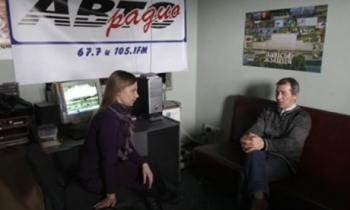PARIS (Reuters) - The row over caricatures of Islam's Prophet Mohammad resembles a dialogue of the deaf, with many European spokesmen defending the right to free speech and many Muslims insisting Islam must be treated with respect.
Calls for moderation, both from Muslim leaders and European politicians, risk getting lost in a public debate dominated by Europeans afraid of losing a core right of their culture and Muslims struggling to win more recognition for theirs.
Centuries of tradition stand behind both viewpoints, which may account for the virulence of the reactions aroused by the publication -- first in Denmark, then across Europe -- of cartoons depicting Mohammad as a terrorist.
The Europeans can date their long struggle for free speech to the 18th century Enlightenment and consider the liberty to criticise all authority a cornerstone of modern democracy.
Muslims look back on centuries of Western hostility towards, and misunderstanding of, their religion and say the time is ripe -- with the higher profile for Muslims in the Middle East and Europe -- for Western countries to treat them as equals.
Egypt's ambassador in Copenhagen, Mona Omar Attia, highlighted the stalemate in comments after she heard Danish Prime Minister Anders Fogh Rasmussen say his government could not apologise for anything that Danish newspapers had printed.
"This means that the whole story will continue and that we are back to square one again. The government of Denmark has to do something to appease the Muslim world," she said.
In separate statements, the French and German interior ministers defended their traditions against Muslim taboos.
"Why should the government apologise for something that happened in the exercise of press freedom?" Germany's Wolfgang Schaueble asked. "If the state intervenes, that is the first step towards limiting press freedom."
In Paris, Nicolas Sarkozy said: "Given the choice, I prefer too many caricatures to too much censorship."
RESPECT
The word "respect" repeatedly pops up in Muslim comments, revealing how much the cartoons linking Mohammad and terrorism hurt the feelings of people who feel humiliated by the West.
Mohamed Mestiri, head of the International Institute of Islamic Thought in Paris, said respect was the main issue for Muslims outraged by the images they consider blasphemous.
"It's all about creating a culture of respect, of wanting to live together under the roof of a plural citizenry," he said.
The head of France's Muslim Council saw the cartoons as the latest in a history of Western affronts to Muslims who only in recent years have mustered enough political clout to fight back.
"Yesterday, the world's Muslims were unable to react to critics who for centuries constantly dumped truckloads of slander on their religion, sacred books and Prophet," said Dalil Boubakeur, rector of the Paris Grand Mosque.
While insisting European Muslims accept the separation of church and state, Mestiri warned against assuming Islam would ever tolerate criticism of what it held most sacred. "One must not judge Islam by the standards of Christian culture," he said.
EXCEPTION FOR JEWS?
Muslim spokesmen resent the way non-Muslims argue they cannot dilute press freedoms just for one religion but make an exception for Jews.
"Why do they say that Muslims have no right to condemn the publishing of those cartoons, when they fight tooth and nail against those who even talk negatively about the Holocaust?" asked Sheikh Hussain Halawa, secretary general of the European Council for Fatwa and Research.
These arguments seemed to have little influence at Liberation, the Paris daily that joined the European media's solidarity wave on Friday and reprinted two Danish cartoons.
It called the Danish caricatures "The Satanic Drawings," referring to "The Satanic Verses" whose criticism of Islam earned British author Salman Rushdie death threats in 1989.
"Rushdie's novel would be almost impossible to publish today," it wrote.









